Democrats are individuals who are members of the Democratic Party, one of the two major political parties in the United States. The party has a long history, with its origins dating back to the early 19th century.
Democrats generally support a range of policies aimed at promoting social justice, protecting civil rights, and promoting economic equality, among other things.
Over the years, the Democratic Party has produced many famous politicians and public figures who have played key roles in shaping the party’s policies and values.
Some of the most famous Democrats include:
- President Joe Biden
- Barack Obama
- Bill Clinton
- Hillary Clinton
- Kamala Harris.
Other prominent Democrats include:
- Senator Elizabeth Warren
- Senator Bernie Sanders
- Speaker of the House Nancy Pelosi
- Civil rights activist Stacey Abrams
These individuals, along with many others, have contributed to the party’s history and legacy, and continue to work towards advancing its goals and values.
Famous Democrats
1. Joe Biden

Joe Biden is the 46th President of the United States. He was born on November 20, 1942, in Scranton, Pennsylvania. He began his political career as a member of the United States Senate, representing Delaware from 1973 to 2009, making him one of the longest-serving senators in U.S. history.
During his time in the Senate, Biden was known for his work on a range of issues, including foreign policy, criminal justice, and healthcare.
He served as the chairman of the Senate Judiciary Committee and the Senate Foreign Relations Committee, where he played a key role in shaping U.S. policy on issues such as arms control and the war in Iraq.
Also Read: Facts About Democrats
In 2009, Biden was elected Vice President of the United States, serving two terms under President Barack Obama. As Vice President, Biden played a key role in a number of initiatives, including the Affordable Care Act, efforts to combat climate change, and the economic stimulus package following the 2008 financial crisis.
In 2020, Biden announced his candidacy for President and won the Democratic nomination, ultimately defeating incumbent President Donald Trump in the general election. He was inaugurated as President on January 20, 2021.
Biden has promised to work on a range of issues during his presidency, including addressing the COVID-19 pandemic, addressing climate change, and promoting social justice and equality.
2. Kamala Harris

Kamala Harris is the Vice President of the United States, serving under President Joe Biden. She was born on October 20, 1964, in Oakland, California. Harris began her career as a prosecutor, working in both the Alameda County District Attorney’s Office and the San Francisco District Attorney’s Office.
In 2010, Harris was elected Attorney General of California, becoming the first woman, African American, and South Asian American to hold the position. As Attorney General, Harris focused on a number of issues, including criminal justice reform, consumer protection, and environmental protection.
In 2016, Harris was elected to the United States Senate, representing California. During her time in the Senate, Harris served on several committees, including the Homeland Security and Governmental Affairs Committee, the Judiciary Committee, and the Budget Committee.
In 2020, Harris was selected as Joe Biden’s running mate in the presidential election. She made history as the first woman, first African American, and first South Asian American to be elected Vice President of the United States.
Harris has promised to work on a range of issues during her tenure as Vice President, including addressing the COVID-19 pandemic, promoting social justice and equality, and addressing climate change.
3. Barack Obama

Barack Obama is an American politician who served as the 44th President of the United States from 2009 to 2017. He was born on August 4, 1961, in Honolulu, Hawaii. Before entering politics, Obama worked as a community organizer and civil rights attorney.
In 2004, Obama was elected to the United States Senate from Illinois, and gained national prominence after delivering a keynote speech at the 2004 Democratic National Convention. In 2008, he won the Democratic nomination for President and went on to defeat the Republicans nominee John McCain in the general election.
As President, Obama signed into law several major pieces of legislation, including the Affordable Care Act (also known as Obamacare), the Dodd-Frank Wall Street Reform and Consumer Protection Act, and the American Recovery and Reinvestment Act of 2009 (also known as the stimulus package). He also oversaw the end of the war in Iraq, the killing of Osama bin Laden, and the normalization of relations with Cuba.
Obama was the first African American President of the United States, and his election was seen as a landmark moment in American history. He was reelected in 2012, defeating Republican nominee Mitt Romney.
After leaving office, Obama has continued to be a prominent figure in American politics and a leading voice on issues such as healthcare, climate change, and criminal justice reform.
4. Hillary Clinton

Hillary Clinton is an American politician and diplomat who served as the 67th United States Secretary of State from 2009 to 2013. She was born on October 26, 1947, in Chicago, Illinois.
Clinton began her political career as a staff attorney for the Children’s Defense Fund and later worked as a law professor and advocate for women’s rights.
In 1992, Clinton’s husband, Bill Clinton, was elected President of the United States, and she served as First Lady from 1993 to 2001. During this time, she was a strong advocate for healthcare reform and played a key role in the development of the Children’s Health Insurance Program.
In 2000, Clinton was elected to the United States Senate from New York, and she was reelected in 2006. During her time in the Senate, she served on several committees, including the Committee on Armed Services and the Committee on Environment and Public Works.
In 2008, Clinton ran for the Democratic nomination for President but was defeated by Barack Obama. She was appointed Secretary of State by Obama in 2009 and served in that position until 2013.
During her tenure as Secretary of State, Clinton played a key role in shaping U.S. foreign policy, including the response to the Arab Spring uprisings and the U.S. military intervention in Libya.
In 2016, Clinton ran for President again, winning the Democratic nomination but losing the general election to Republican nominee Donald Trump. Clinton remains a prominent figure in American politics and continues to be an advocate for issues such as women’s rights, healthcare reform, and democracy promotion.
5. Bill Clinton
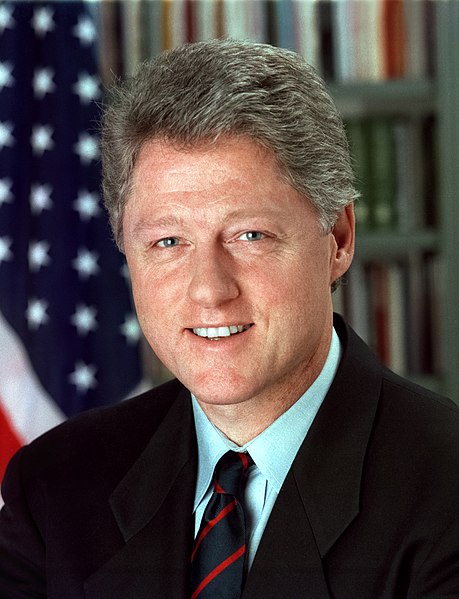
Bill Clinton is an American politician and lawyer who served as the 42nd President of the United States from 1993 to 2001. He was born on August 19, 1946, in Hope, Arkansas. Before entering politics, Clinton worked as a law professor and attorney in Arkansas.
Clinton was first elected Governor of Arkansas in 1978 and served in that position for a total of 12 years, making him one of the longest-serving governors in U.S. history. He was elected President in 1992, defeating incumbent President George H.W. Bush.
As President, Clinton oversaw a period of economic growth and played a key role in the development of policies such as the North American Free Trade Agreement (NAFTA) and welfare reform. He also oversaw the United States’ involvement in several international conflicts, including the Bosnian War and the Kosovo War.
Clinton’s presidency was marked by several scandals, including the Monica Lewinsky scandal, which led to his impeachment by the House of Representatives in 1998.
Clinton was acquitted by the Senate and remained in office until the end of his term in 2001.
Since leaving office, Clinton has remained active in public life as a speaker, author, and advocate for a variety of causes, including HIV/AIDS research and treatment, climate change, and global education initiatives.
6. Al Gore
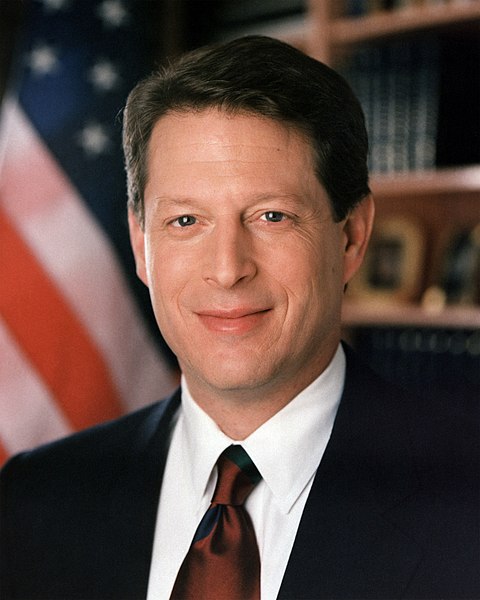
Al Gore is an American politician and environmental activist who served as the 45th Vice President of the United States from 1993 to 2001 under President Bill Clinton.
He was born on March 31, 1948, in Washington, D.C. Gore’s political career began in the 1970s when he was elected to the U.S. House of Representatives from Tennessee.
In 1985, Gore was elected to the U.S. Senate, where he served until he was elected Vice President in 1992. As Vice President, Gore was known for his work on environmental issues, including his advocacy for the Kyoto Protocol, an international treaty aimed at reducing greenhouse gas emissions.
After leaving office, Gore became an environmental activist, focusing on issues such as climate change and renewable energy. He was awarded the Nobel Peace Prize in 2007 for his work on climate change.
Gore has also been involved in several business ventures, including co-founding the sustainability-focused investment firm Generation Investment Management and serving on the board of directors of Apple Inc.
He has continued to be an influential figure in American politics and public life, and has remained active in advocating for policies to address climate change and promote sustainable development.
7. Nancy Pelosi
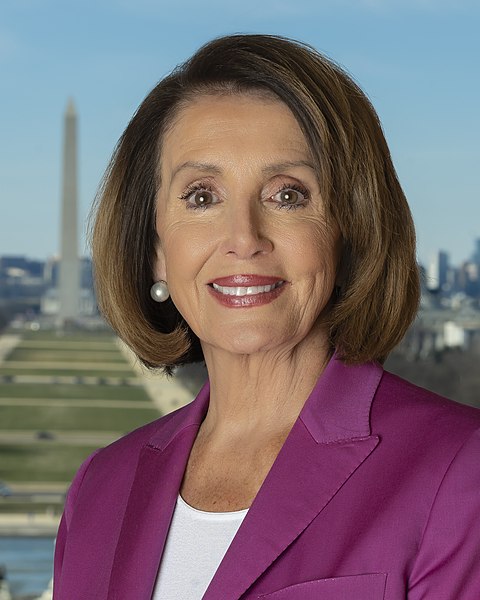
Nancy Pelosi is an American politician who is currently serving as the Speaker of the United States House of Representatives.
Also Read: House of Representatives Facts
She was born on March 26, 1940, in Baltimore, Maryland. Pelosi began her political career as a member of the Democratic National Committee, and was later elected to the United States House of Representatives from California in 1987.
Pelosi has served as the House Democratic Leader, the highest-ranking Democrat in the House of Representatives, and was the first woman to hold the position. In 2007, she was elected Speaker of the House, becoming the first woman to hold that position as well.
Pelosi has been a leading figure in the Democratic Party, known for her advocacy on issues such as healthcare, education, and environmental protection.
During her tenure as Speaker, Pelosi has overseen several major pieces of legislation, including the American Recovery and Reinvestment Act of 2009, the Dodd-Frank Wall Street Reform and Consumer Protection Act, and the Affordable Care Act.
She has also been a vocal critic of President Donald Trump and has played a key role in the impeachment proceedings against him.
Pelosi remains a prominent figure in American politics, and her leadership in the House of Representatives has been instrumental in shaping the Democratic Party’s policy agenda and response to current events.
8. Chuck Schumer
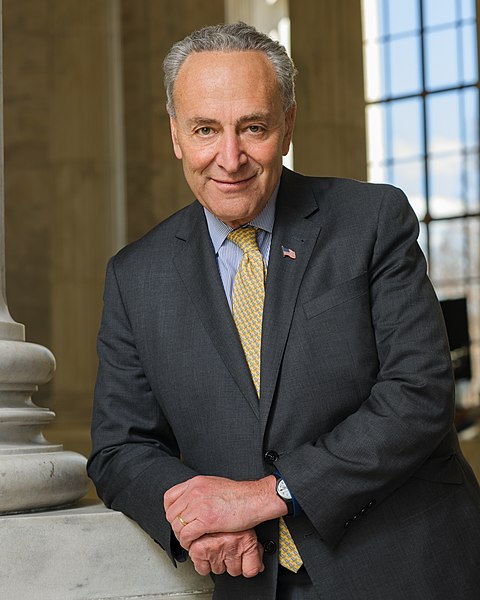
Chuck Schumer is an American politician who is currently serving as the Senate Majority Leader in the United States Senate. He was born on November 23, 1950, in Brooklyn, New York.
Schumer began his political career in the New York State Assembly and later served in the United States House of Representatives before being elected to the United States Senate from New York in 1998.
As a Senator, Schumer has been a leading figure in the Democratic Party, known for his advocacy on issues such as healthcare, immigration, and gun control. He has been a vocal critic of the Trump administration and has played a key role in shaping the Democratic Party’s response to current events.
In 2021, Schumer became Senate Majority Leader, following the Democratic Party’s victory in the Georgia Senate runoff elections.
As Majority Leader, Schumer has overseen the passage of several major pieces of legislation, including the American Rescue Plan Act of 2021, aimed at providing relief to individuals and businesses impacted by the COVID-19 pandemic.
Schumer remains a prominent figure in American politics and is known for his ability to work across party lines to achieve legislative goals. He is seen as a leading voice in the Democratic Party and a key figure in shaping its policy agenda.
9. Elizabeth Warren
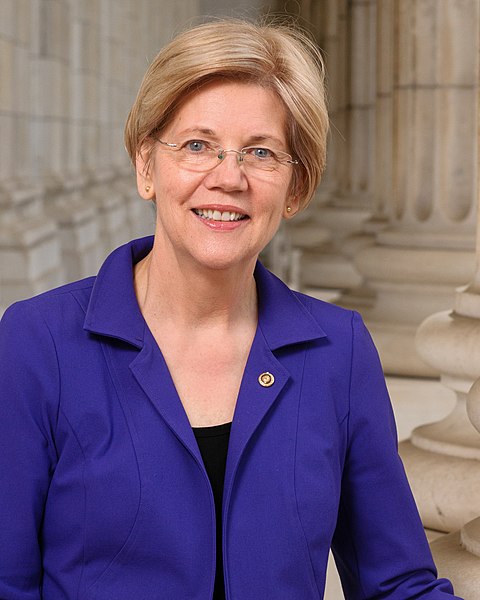
Elizabeth Warren is an American politician, scholar, and consumer advocate who is currently serving as a United States Senator from Massachusetts. She was born on June 22, 1949, in Oklahoma City, Oklahoma.
Before entering politics, Warren was a law professor at Harvard Law School and a leading expert on bankruptcy law and consumer protection.
Warren’s political career began when she was appointed by President Barack Obama to help establish the Consumer Financial Protection Bureau, a federal agency aimed at protecting consumers from financial fraud and abuse.
In 2012, Warren ran for the United States Senate from Massachusetts and was elected, defeating Republican incumbent Scott Brown.
As a Senator, Warren has been a leading figure in the Democratic Party, known for her advocacy on issues such as economic inequality, consumer protection, and healthcare reform. She has been a vocal critic of Wall Street and the financial industry, and has proposed several major pieces of legislation aimed at regulating the financial industry and protecting consumers.
In 2020, Warren ran for the Democratic nomination for President, advocating for policies such as a wealth tax, student loan forgiveness, and Medicare for All. Although she did not win the nomination, Warren remains a leading voice in the Democratic Party and a key figure in shaping its policy agenda.
10. Bernie Sanders

Bernie Sanders is an American politician and activist who has served as a United States Senator from Vermont since 2007. He was born on September 8, 1941, in Brooklyn, New York.
Sanders began his political career in the 1970s as a member of the Liberty Union Party in Vermont, and later served as mayor of Burlington, Vermont, from 1981 to 1989.
Sanders was first elected to the United States House of Representatives from Vermont in 1990, and served in that position until he was elected to the United States Senate in 2006.
As a Senator, Sanders has been a leading figure in the progressive wing of the Democratic Party, known for his advocacy on issues such as income inequality, healthcare reform, and climate change.
In 2016, Sanders ran for the Democratic nomination for President, advocating for policies such as a $15 minimum wage, free college education, and Medicare for All.
Although he did not win the nomination, his campaign energized a large and passionate base of supporters, and helped to push many of his policy proposals into the mainstream of the Democratic Party.
In 2020, Sanders ran for the Democratic nomination again, but ultimately lost to Joe Biden. Despite this, he remains a leading voice in the progressive movement and a key figure in shaping the Democratic Party’s policy agenda.
11. Andrew Cuomo
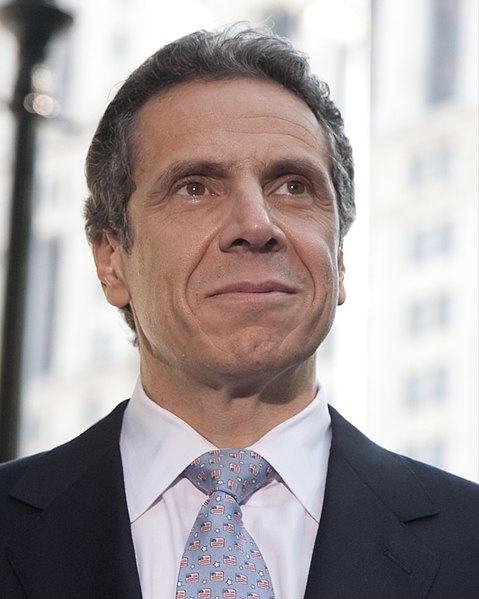
Andrew Cuomo is an American politician who served as the Governor of New York from 2011 to 2021. He was born on December 6, 1957, in Queens, New York. Cuomo began his career as a lawyer, and later served as an assistant district attorney in New York City.
In 1993, Cuomo was appointed Secretary of Housing and Urban Development by President Bill Clinton, and served in that position until 2001. He later worked in private equity before returning to public service as Attorney General of New York from 2007 to 2010.
Cuomo was first elected Governor of New York in 2010, and was reelected in 2014 and 2018. During his tenure as Governor, Cuomo oversaw several major initiatives, including the legalization of same-sex marriage, the implementation of a $15 minimum wage, and the expansion of healthcare access.
In 2020, Cuomo gained national attention for his handling of the COVID-19 pandemic in New York, which was one of the hardest-hit states in the country. However, he also faced criticism for his handling of nursing home deaths during the pandemic, as well as allegations of sexual harassment and misconduct.
In August 2021, Cuomo resigned as Governor following an investigation into the allegations of sexual harassment and misconduct. His resignation marked the end of a long and controversial career in New York politics.
12. Jimmy Carter

Jimmy Carter is an American politician and philanthropist who served as the 39th President of the United States from 1977 to 1981. He was born on October 1, 1924, in Plains, Georgia.
Before entering politics, Carter served in the United States Navy and later worked as a peanut farmer and businessman in Georgia.
Carter’s political career began when he was elected to the Georgia State Senate in 1962. He later served as Governor of Georgia from 1971 to 1975, before being elected President in 1976, defeating incumbent President Gerald Ford.
As President, Carter focused on a range of domestic and international issues, including energy policy, environmental protection, and human rights. He negotiated the Camp David Accords, a peace agreement between Israel and Egypt, and oversaw the establishment of diplomatic relations with China. However, his presidency was also marked by several challenges, including economic inflation and the Iran hostage crisis.
After leaving office, Carter continued to be active in public life as a philanthropist and advocate for human rights and peace. He was awarded the Nobel Peace Prize in 2002 for his work in conflict resolution and the promotion of democracy and human rights. Carter remains a respected and influential figure in American politics and public life.
13. John Kerry

John Kerry is an American politician and diplomat who served as the 68th United States Secretary of State from 2013 to 2017. He was born on December 11, 1943, in Aurora, Colorado.
Kerry began his political career as a member of the Vietnam Veterans Against the War, and later served as a prosecutor and Lieutenant Governor of Massachusetts.
In 1984, Kerry was elected to the United States Senate from Massachusetts, and served in that position for 28 years. During his time in the Senate, Kerry was a leading voice on foreign policy, serving as the chairman of the Senate Foreign Relations Committee from 2009 to 2013.
In 2004, Kerry ran for President of the United States as the Democratic nominee, but was ultimately defeated by incumbent President George W. Bush.
After leaving the Senate, Kerry was appointed by President Barack Obama to serve as Secretary of State, where he played a key role in shaping U.S. foreign policy, including the Iran nuclear deal and the Paris climate agreement.
Since leaving office, Kerry has continued to be active in public life, advocating for policies to address climate change and promote clean energy.
In 2021, he was appointed as the United States Special Presidential Envoy for Climate by President Joe Biden, a position in which he will lead efforts to combat climate change on behalf of the United States.
14. Alexandria Ocasio-Cortez

Alexandria Ocasio-Cortez, often referred to as AOC, is an American politician who is currently serving as the United States Representative for New York’s 14th congressional district.
She was born on October 13, 1989, in New York City. Ocasio-Cortez’s political career began when she worked as an organizer for Bernie Sanders’ 2016 presidential campaign.
In 2018, Ocasio-Cortez ran for Congress as a Democratic candidate, defeating incumbent Joe Crowley in the primary and later winning the general election.
As a Representative, she has been a leading figure in the progressive wing of the Democratic Party, advocating for policies such as a Green New Deal, Medicare for All, and a $15 minimum wage.
Ocasio-Cortez has been a vocal critic of President Donald Trump and has called for his impeachment. She has also been a strong advocate for social justice issues, including immigrant rights and criminal justice reform.
Despite being relatively new to politics, Ocasio-Cortez has quickly become one of the most prominent and influential figures in the Democratic Party. She has been a driving force behind several progressive initiatives in Congress and has amassed a large and passionate base of supporters.
15. Madeleine Albright
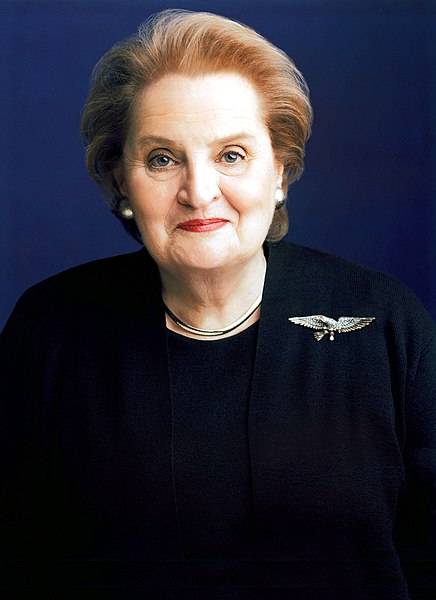
Madeleine Albright is an American diplomat and politician who served as the 64th United States Secretary of State from 1997 to 2001.
She was born on May 15, 1937, in Prague, Czechoslovakia (now the Czech Republic). Albright and her family fled to the United States in 1948 to escape Communist rule.
Albright’s political career began in the 1970s, when she worked as a legislative assistant in the United States Senate. In 1993, she was appointed by President Bill Clinton to serve as the United States Ambassador to the United Nations, and later became the first woman to serve as Secretary of State.
As Secretary of State, Albright played a key role in shaping U.S. foreign policy, including the NATO intervention in Kosovo, efforts to combat terrorism, and the normalization of relations with Vietnam. She was also a vocal advocate for women’s rights and democracy promotion.
Since leaving office, Albright has continued to be active in public life, serving as a professor at Georgetown University and as the chair of the National Democratic Institute, an organization focused on promoting democracy and human rights around the world. She remains a respected and influential figure in American politics and foreign affairs.
